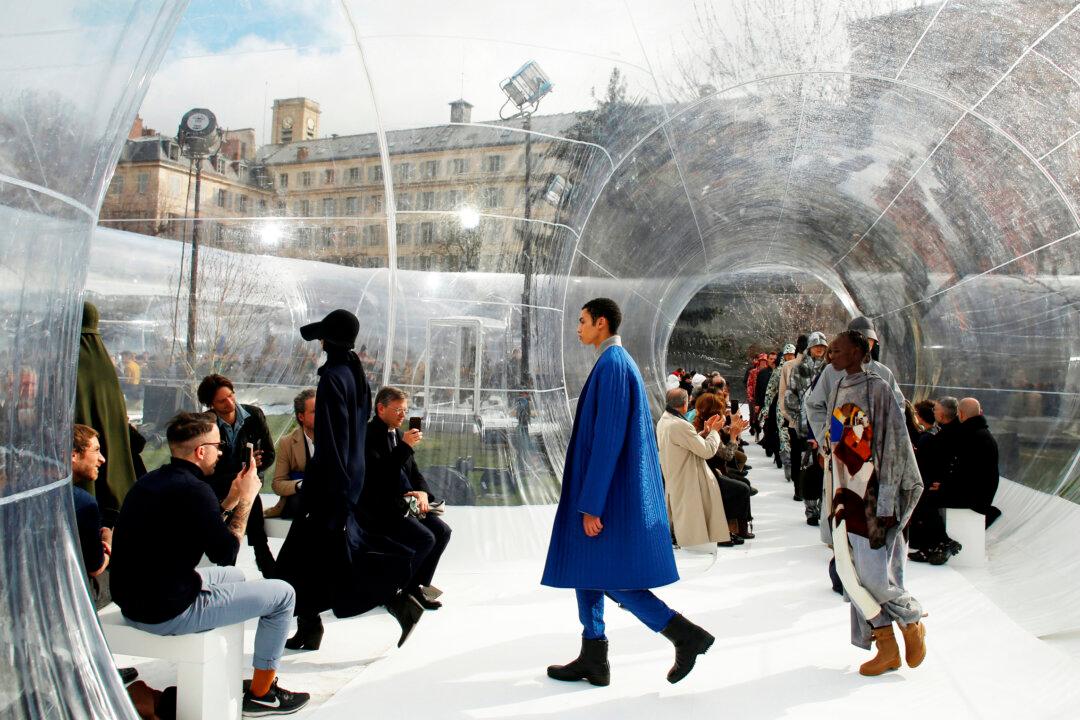PARIS—The coronavirus pandemic has instilled extra unpredictability into the already fickle Paris Fashion Week. After first canceling the July shows for menswear and Haute Couture, the French fashion federation has now organized an unprecedented schedule of digital-only events instead.
Top houses such as Chanel, Dior, and Hermes are set to show their new Fall-Winter 2020/2021 couture collections or their Spring-Summer 2021 menswear collections online this week—but with no celebrity guests, no Vogue Editor-in-Chief Anna Wintour, and none of the usual frenzied media circus.






